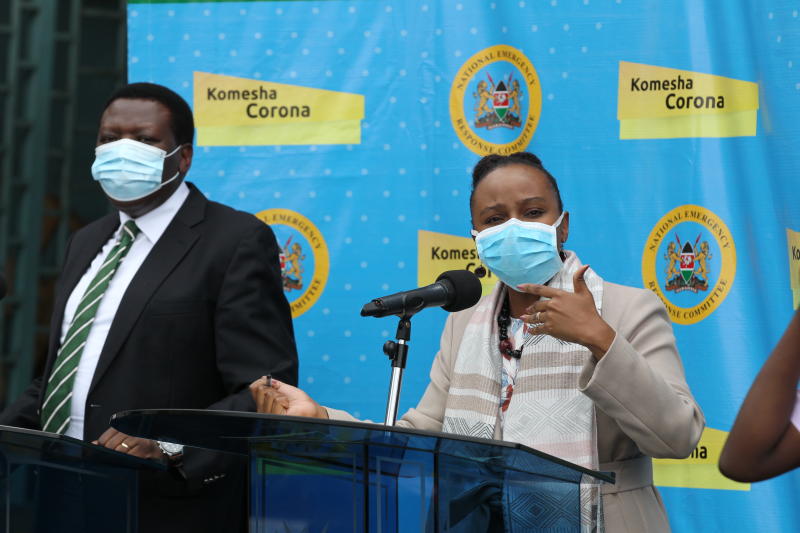×
The Standard e-Paper
Join Thousands Daily

Health Chief Administrative Secretary Mercy Mwangangi during yesterday’s briefing at Afya House. [Jonah Onyango, Standard]
A breakdown of Sh1.3 billion spent in the fight against Covid-19 pandemic includes Sh42 million for leasing ambulances, Sh4 million for tea and snacks, and Sh2 million for airtime.